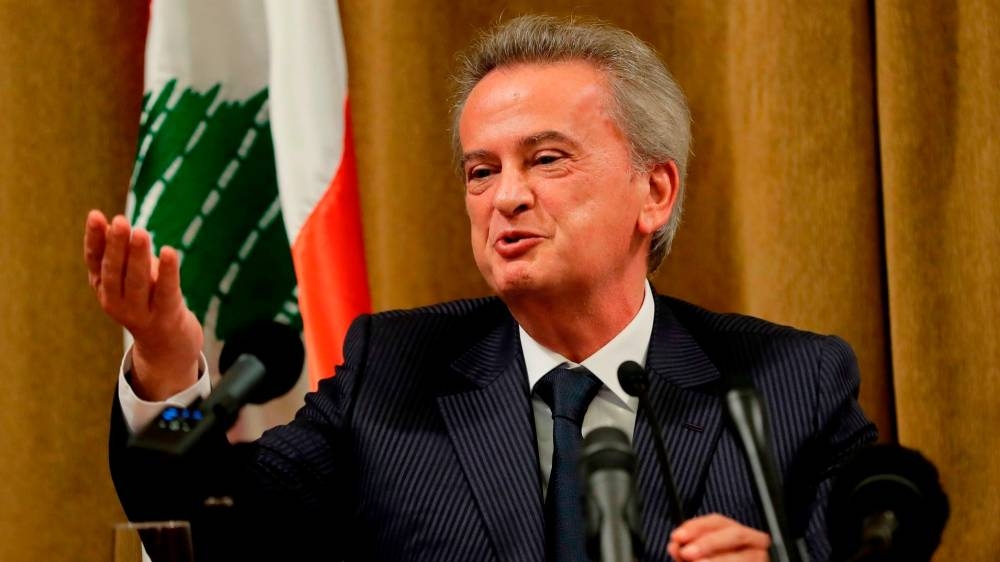
Crisis-hit Lebanon's central bank chief Riad Salameh, who is wanted for alleged financial crimes in several European countries, was to leave his post Monday with no designated successor in place.
Lebanon's deeply divided political class has failed to agree on a replacement for Salameh, 73, creating another power vacuum in a country that also has no president and is ruled by a caretaker government.
Salameh, who held the post for 30 years, is a key figure of the Lebanese political elite widely blamed for the country's economic meltdown, which has seen the currency collapse and poverty rates soar.
Defending his legacy, Salameh days ago told a local broadcaster that he had been made a "scapegoat" for the crisis, and blamed the rest of Lebanon's political class for abandoning him "a long time ago".
Under Lebanese law, Salameh will be temporarily replaced by the central bank's first vice-governor, Wassim Manssouri.
However, all four vice-governors earlier this month threatened to resign.
Manssouri was expected to announce later Monday whether he will take up the post.
The small Mediterranean country has been torn for the past four years by an economic crisis that the World Bank has labelled one of the worst in modern history.
Politics in Lebanon, a country of only six million people, is intensely complex as power is shared under a confessional system that recognises 18 Muslim and Christian sects.
Lebanon has been governed by a caretaker cabinet with limited powers for more than a year, and has been without a president for nine months.
Salameh has for two years been the subject of judicial investigations at home and abroad into allegations including embezzlement, money laundering, fraud and illicit enrichment, charges which he denies.
He is wanted in France and Germany, and Interpol has issued a Red Notice for his arrest, but Lebanon does not extradite its nationals.
Salameh is soon to be tried in Paris, a European diplomatic source told AFP.
In March 2022, France, Germany and Luxembourg seized assets worth 120 million euros ($135 million) in a move linked to a probe into Salameh's wealth.
In February, Lebanon also charged Salameh with embezzlement, money laundering and tax evasion as part of its own investigations.
The domestic probe was opened following a request for assistance from Switzerland's public prosecutor, who is looking into more than $300 million in fund movements by Salameh and his brother.
